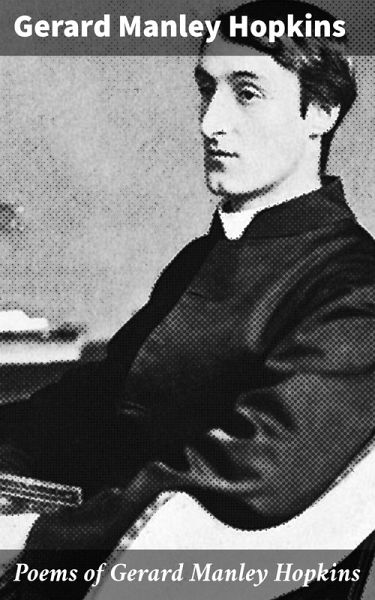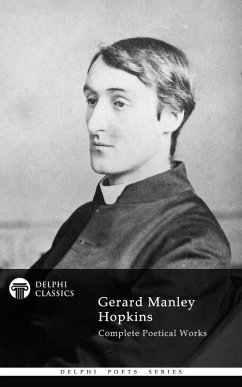
Poems of Gerard Manley Hopkins (eBook, ePUB)
Enriched edition. Now First Published
Kommentar: Booth, Collin / Redaktion: Good Press; Bridges, Robert
Versandkostenfrei!
Sofort per Download lieferbar
1,99 €
inkl. MwSt.
Weitere Ausgaben:

PAYBACK Punkte
0 °P sammeln!
In "Poems of Gerard Manley Hopkins," the author introduces readers to a revolutionary style of poetry marked by its innovative use of rhythm, sound, and imagery. Hopkins, a key figure in the 19th-century literary landscape, utilizes his unique 'sprung rhythm' to convey profound spirituality and nature's essence. Themes of faith, mortality, and beauty permeate these poems, showcasing an intricate relationship with God and the world. With a modernist touch ahead of his time, Hopkins' verse melds the emotional and the intellectual, inviting readers into a deeply personal yet universally resonant ...
In "Poems of Gerard Manley Hopkins," the author introduces readers to a revolutionary style of poetry marked by its innovative use of rhythm, sound, and imagery. Hopkins, a key figure in the 19th-century literary landscape, utilizes his unique 'sprung rhythm' to convey profound spirituality and nature's essence. Themes of faith, mortality, and beauty permeate these poems, showcasing an intricate relationship with God and the world. With a modernist touch ahead of his time, Hopkins' verse melds the emotional and the intellectual, inviting readers into a deeply personal yet universally resonant exploration of human experience. Gerard Manley Hopkins, an English Jesuit priest, experienced a profound spiritual awakening that greatly influenced his literary output. His religious convictions and appreciation for nature stemmed from his formative years and educational endeavors at Oxford, where he initially struggled with the conflict between his artistic aspirations and spiritual commitments. Despite the obscurity of his work during his lifetime, Hopkins's poems eventually gained posthumous renown, solidifying his status as a precursor to modernist poetry. This collection is indispensable for readers seeking to understand the evolution of lyrical poetry. Hopkins' distinct voice and transformative approach offer an enriching experience, appealing to both literary enthusiasts and casual readers alike. Dive into this seminal text to witness how Hopkins' innovation reshaped poetry and continues to resonate in contemporary literary discourse. In this enriched edition, we have carefully created added value for your reading experience: - A comprehensive Introduction outlines these selected works' unifying features, themes, or stylistic evolutions. - The Author Biography highlights personal milestones and literary influences that shape the entire body of writing. - A Historical Context section situates the works in their broader era-social currents, cultural trends, and key events that underpin their creation. - A concise Synopsis (Selection) offers an accessible overview of the included texts, helping readers navigate plotlines and main ideas without revealing critical twists. - A unified Analysis examines recurring motifs and stylistic hallmarks across the collection, tying the stories together while spotlighting the different work's strengths. - Reflection questions inspire deeper contemplation of the author's overarching message, inviting readers to draw connections among different texts and relate them to modern contexts. - Lastly, our hand-picked Memorable Quotes distill pivotal lines and turning points, serving as touchstones for the collection's central themes.
Dieser Download kann aus rechtlichen Gründen nur mit Rechnungsadresse in A, B, BG, CY, CZ, D, DK, EW, E, FIN, F, GR, H, IRL, I, LT, L, LR, M, NL, PL, P, R, S, SLO, SK ausgeliefert werden.













